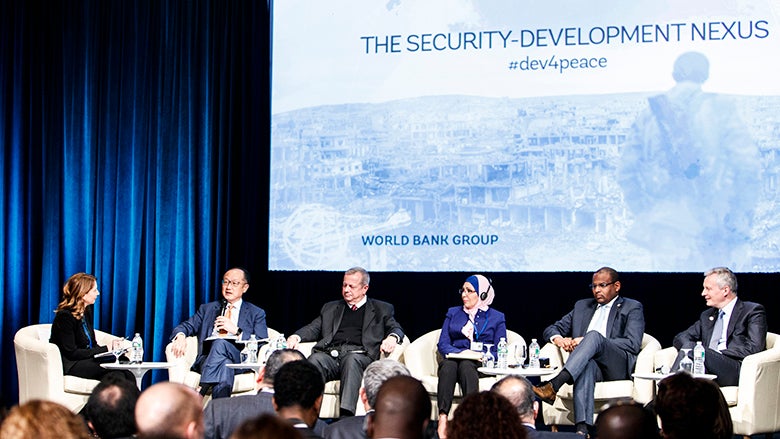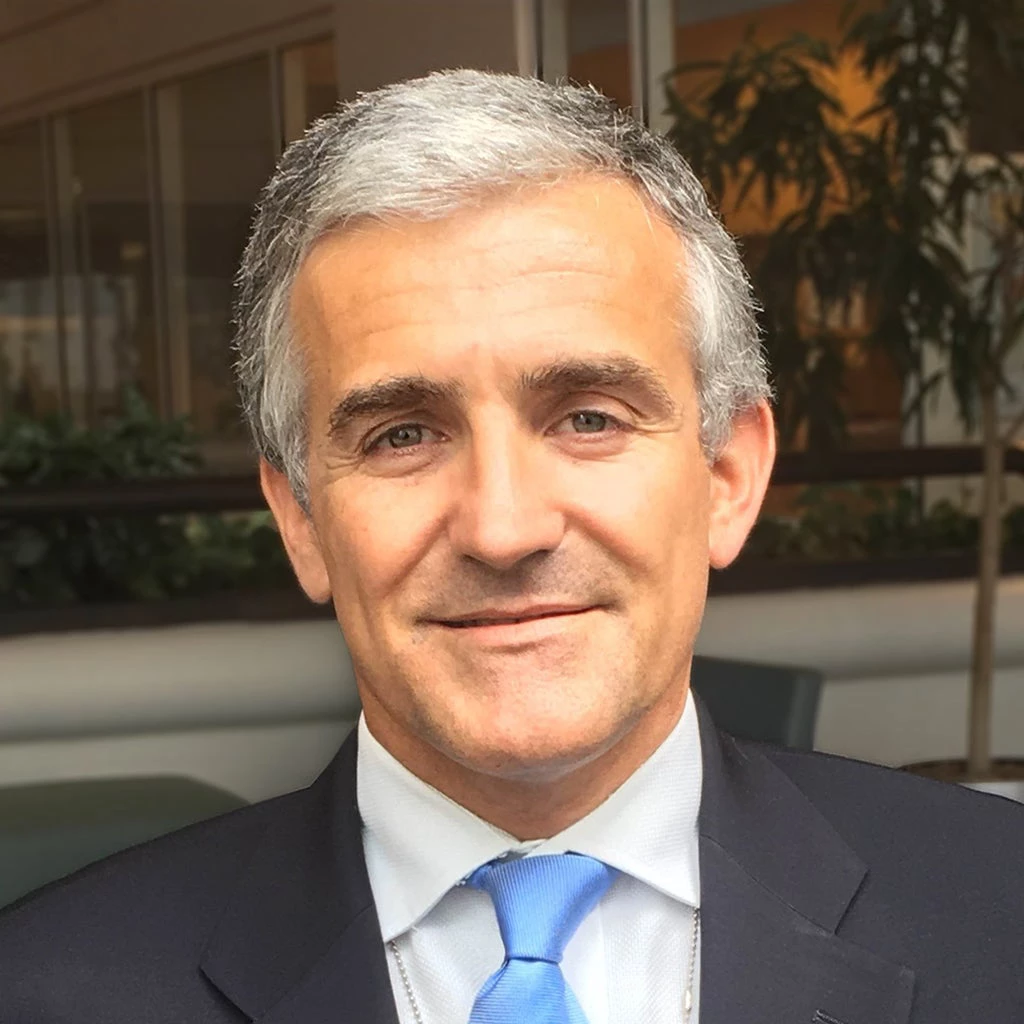
The World Bank Group-IMF Spring Meetings, held April 17-19 in Washington D.C., offered an opportunity to take stock of progress on our work to end fragility, conflict and violence (FCV), as well as to embrace the renewed commitment expressed by the Bank Group’s shareholders.
During the Meetings, our shareholders endorsed a transformative $13 billion capital increase that will help us deliver our development results in a more sustainable manner in both low- and middle-income countries. Additionally, the International Development Association (IDA), the Bank’s fund for the poorest countries, made its capital market debut with an inaugural $1.5 billion benchmark bond. The bond will greatly increase IDA’s lending capacity to support the world’s 75 poorest countries. Finally, a Communique issued by the Development Committee welcomed overall World Bank Group engagement in situations of fragility, conflict and violence, especially where humanitarian crises cause hardship and forced displacement, and supported management’s efforts to increase its field presence in these areas. These actions follow the 18th replenishment of IDA in 2017, which doubled resources for low-income countries affected by FCV to more than $14 billion. Together, they signify a renewed commitment to bettering the lives of those living in FCV situations.
To further strengthen support for the FCV agenda, during Spring Meetings, we engaged in discussions with governments, development partners, think tanks, civil society organizations and others.
We know that to reach our twin goals of reducing extreme poverty and boosting shared prosperity, the international community needs to take an integrated approach to reducing the risk of violent conflict, or the relapse of conflict, by improving coordination between political, security, and development efforts. During the high-level panel, The Security-Development Nexus, thought leaders discussed how the World Bank can build and maintain stable systems, institutions, and societies by making the right investments that can bring security, stability and prosperity to countries that are at risk of violent conflict. Panelists Jim Yong Kim, World Bank Group President; General John Allen, President of The Brookings Institution; Thikra Alwash, Mayor of Bagdad; Bruno Le Maire, France’s Minister of Economy and Finance; and Boubou Cisse, Mali’s Minister of Economy and Finance, all agreed on the importance of having joint planning among security, humanitarian and development actors.
Ahead of the discussion, we all were treated to an impromptu musical performance by Syrian and Guinean singers featuring songs that evoked feelings of dislocation and loss. ‘Three Songs for the Uprooted,’ set the tone for the event and focused on deepening our understanding of the critical relationship between security and development for restoring peace and consolidating stability.
Promoting economic empowerment of women in fragile contexts and how governments and development partners can best support women as agents of peace and stability was highlighted at the high-level panel, Empowering Women for Peace. The event featured government leaders from around the world, as well as women entrepreneurs living and working in fragile settings who have overcome immense obstacles to launch and maintain their businesses. We had the pleasure of hosting Thikra Alwash, Mayor of Baghdad; Diane Jacovella, Deputy Minister of International Development, Global Affairs, Canada; World Bank CEO Kristalina Georgieva; Sahar Nasr, Egyptian Minister of Investment and International Cooperation; Sigrid Kaag, The Netherlands’ Minister for Foreign Trade and Development Cooperation; Patricia Veringa-Gieskes, CEO of The Job Factory in the Democratic Republic of Congo; and Lina Khalifeh, SheFighter Self-Defense Training (Jordan) founder and entrepreneur. The panel was moderated by Roula Khalaf, Financial Times Deputy Editor.
In a demonstration of the strong collaboration between the World Bank and UNHCR to respond to the global crisis on forced displacement, Georgieva and UN High Commissioner for Refugees Filippo Grandi signed a Memorandum of Understanding to establish a new Joint Data Center on forced displacement. The center responds to the growing demand for more and better data, to inform a stronger global response to forced displacement and improve policies and programming to help affected people.
Economic migration and forced displacement are complex and multi-dimensional issues. Together, these challenges affect 250 million international migrants and 65 million forcibly displaced persons in every region in the world. In response, seven Multi-lateral Development Banks (MDBs) officially launched and operationalized a new coordination platform on economic migration and forced displacement to advance strategic priorities including improving data and evidence and strengthening technical assistance. Migrants and displaced people face distinct socio-economic challenges and the common risk of falling into poverty and not being able to get out. Managing these challenges is critical to achieving the Sustainable Development Goals, including our shared objective to end poverty by 2030.
Our work on FCV is part of the World Bank’s commitment to respond to the global development challenges before us, and we embrace it with renewed enthusiasm and determination.


Join the Conversation